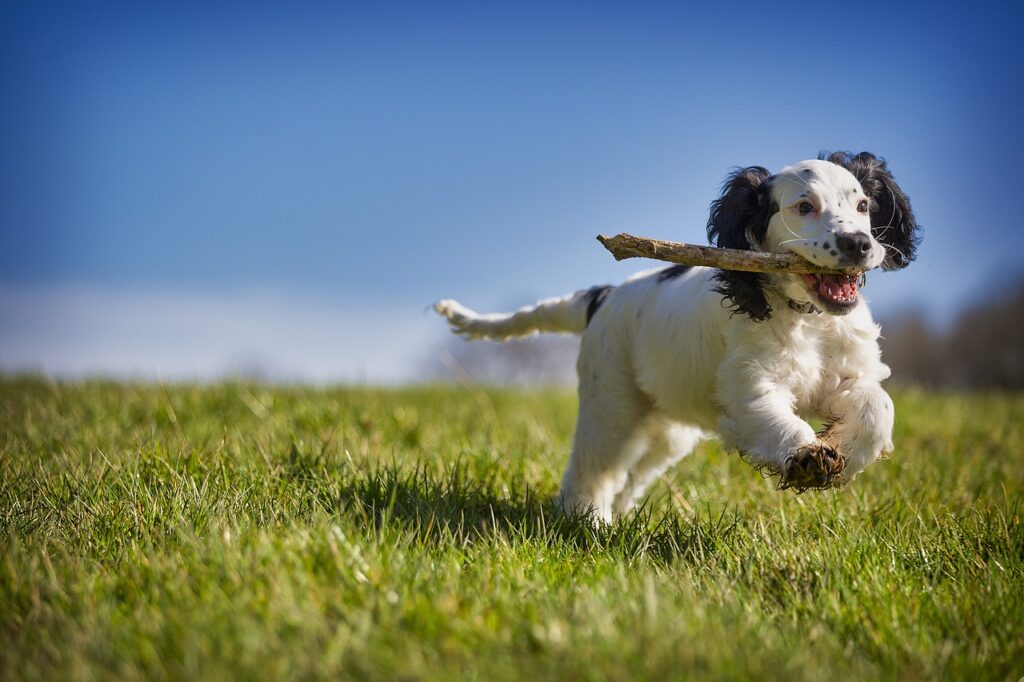Can Dogs Eat Yams? – Yes, They Can
Definitely! Dogs can eat yams, but as with most human foods, it’s best if they are given in moderation. Yams are a nutritious addition to your dog’s diet when prepared plainly – boiled or baked without any added sweeteners or spices. These starchy roots are not only tasty but also packed with beneficial nutrients. However, remember to introduce them slowly into your dog’s diet to avoid any digestive upset.
Can Puppies Eat Yams?
Yes, puppies can eat yams, but it’s vital to wait until they are old enough to handle solid foods in addition to their primary diet of puppy-formulated food. Introduce yams in small quantities and observe your puppy for any adverse reactions, intestinal distress, or allergies before incorporating it as a regular treat.
Things to consider when feeding yams to puppies?
When feeding yams to puppies, ensure they are cooked and mashed without any butter, spices, or sugar. Start with a tiny portion to make sure your puppy digests the yams well. High in fiber, yams can help with healthy digestion but should still be a small part of a balanced diet, considering their growing needs.
Nutritional Benefits of Yams for Dogs – Why Yams are good for Dogs
Vitamin Content
Yams are rich in vitamins, such as Vitamin C and B6, which are beneficial for your dog’s immune system and overall health. These vitamins help in fighting diseases and promoting a healthy metabolism respectively.
Fiber
Dietary fiber in yams can assist in keeping your dog’s digestion regular. While dogs don’t need as much fiber as humans, a healthy amount can contribute to their digestive health.
Minerals
Yams come packed with essential minerals such as potassium, magnesium, and manganese. These are crucial for maintaining a healthy heart, strong bones, and proper metabolic functions in dogs.
Antioxidants
The antioxidants found in yams can help prevent disease and cell damage. They support the immune system and are important for long-term health.
Low in Fat
Yams are a low-fat food, making them a much healthier treat option for your dog, especially for those that need to watch their weight.
Potential Allergies: Can Dogs Be Allergic to Yams?
While yams are generally safe for dogs, some may develop an allergic reaction. Keep an eye out for any unusual signs after your dog consumes them for the first time.
Symptoms of Yam Allergies in Dogs
- Itching: Look for excessive scratching or licking as a possible allergic reaction to yams.
- GI Distress: Vomiting or diarrhea can indicate that your dog’s system isn’t agreeing with yams.
- Respiratory Issues: If your dog is coughing or wheezing, it could be a sign of an allergy.
What to Do If Your Dog Shows Symptoms?
- Consult Your Vet: If you suspect an allergy, stop feeding your dog yams and consult your veterinarian.
- Monitor Your Dog: Keep an eye on your dog’s behavior and symptoms if they develop an allergic reaction.
- Follow Professional Advice: Your vet may recommend an antihistamine or other treatment to address the symptoms.
Recommended Amount: How Much Yams Can a Dog Consume?
Always follow the rule of moderation when introducing any new food to your dog’s diet. A few small cubes of cooked yam, equivalent to a couple of tablespoons, can serve as a good starting point for medium-sized dogs. Adjust the quantity according to your dog’s size and overall diet.
Things to Consider When Feeding Yams to Dogs
Always serve yams plain and cooked, never raw or with seasonings. Introduce them slowly into your dog’s diet to prevent stomach upset and adjust serving sizes in ratio to your dog’s total diet to maintain a nutritional balance.
How to Feed Yams to Dogs: A Quick Guide
Offering yams to your dogs can be a wholesome treat experience. Rich in nutrients and taste, this natural food can add variety to their diet when served properly.
Simple Mashed Yams
Boil the yams until soft, mash them without adding anything else, and let them cool before serving a small portion as a treat or mixing it into their regular food.
Yam Cubes
Cut boiled or baked yams into small, bite-sized cubes that can be a delightful little snack. Make sure they are adequately cooled before offering them to your dog.
Yam Jerky
Slice cooked yams into thin strips and let them cool to create a chewy treat that can also serve to support your dog’s dental health through the natural chewing process.
Conclusion
Feeding yams to your dog can provide a host of nutritional benefits when done correctly. Always cook yams plain, introduce them slowly, and monitor for any adverse reactions. Consult your vet if you’re unsure about proper diet adjustments or observe any symptoms of allergies. With these precautions, offering your dog yams can be a safe and enjoyable addition to their healthy, balanced diet.



